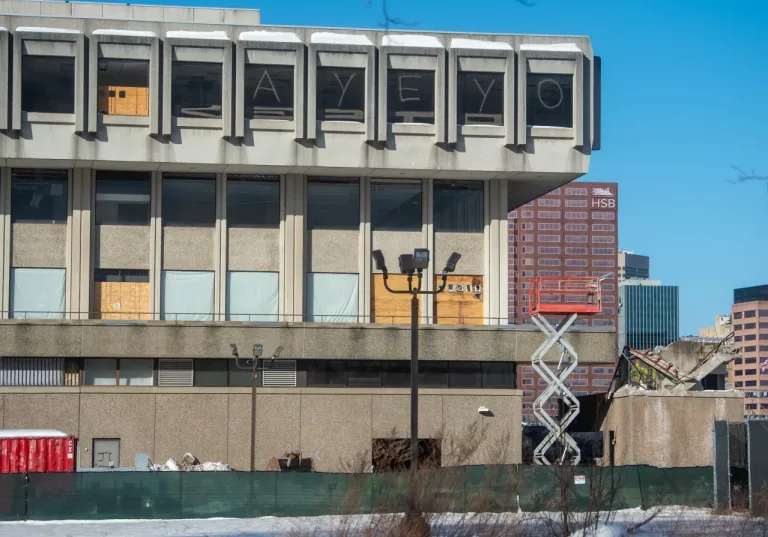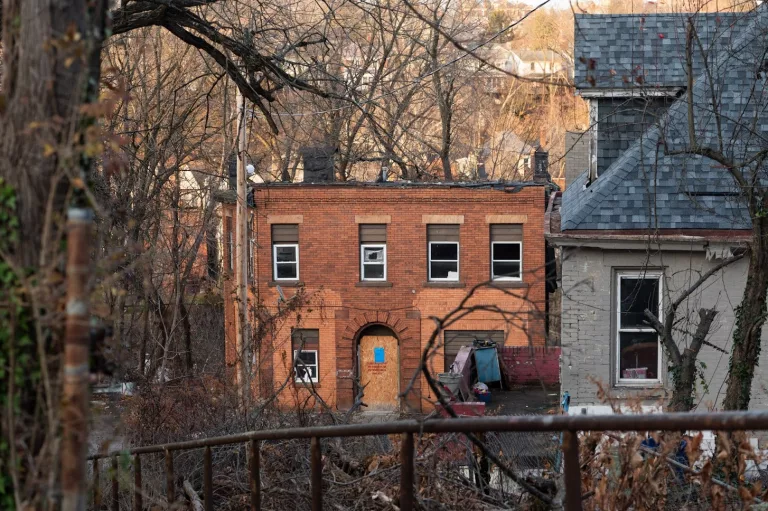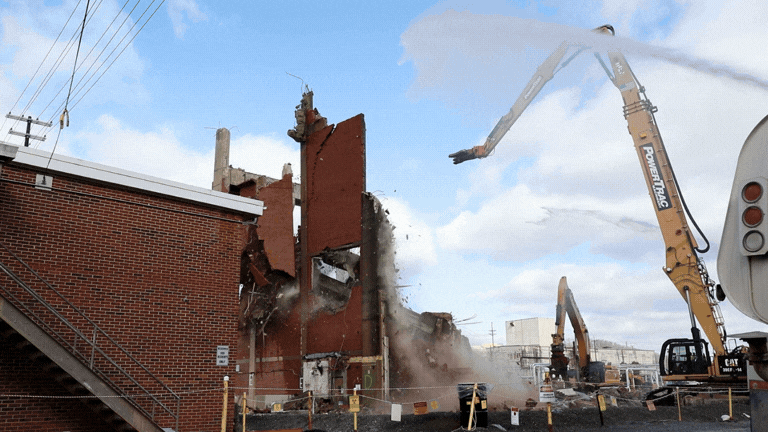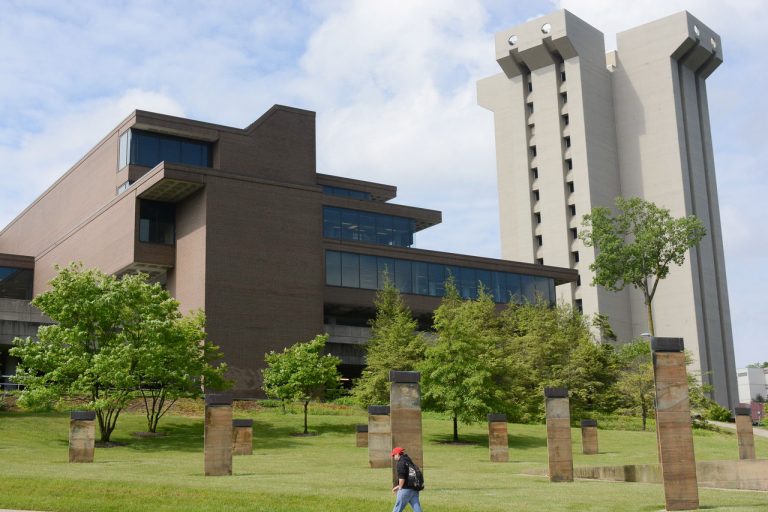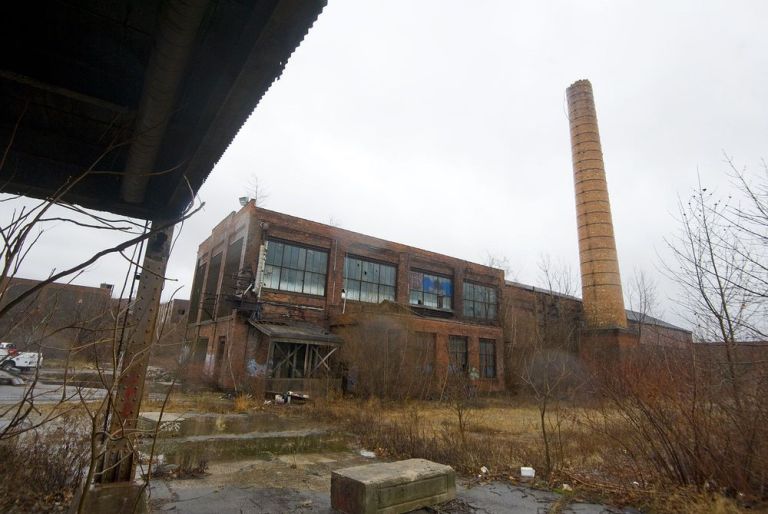
The city of Des Moines is expected to spend nearly $1 million on demolition of buildings at the long-vacant Dico Superfund site on the southwest edge of downtown, almost double a previous estimate.
The City Council will vote Monday to receive bids for its portion of the demolition, which includes the less-contaminated office and production buildings left over from the former Dico Inc. manufacturing plant that closed 26 years ago.
Demolition and remediation are the first steps toward redeveloping the site, a prime piece of real estate that, despite its toxic history, is slated for a redevelopment that would serve as a southwest gateway to downtown. Krause +, the real estate arm of the group that owns the Kum & Go convenience store chain, wants to build a $540 million professional soccer stadium and entertainment district there.
This week, crews working for the U.S. Environmental Protection Agency started moving in equipment to begin demolition of the heavily contaminated buildings on the southern edge of the property. But it will be a while before that work shows visible results because the crews first must remove large amounts of asbestos from the structures, said Pam Cooksey, assistant city manager.
The EPA also will remediate a pond on the property and is installing a groundwater treatment system to mitigate chemicals in the soil.
“We’re probably a good month, maybe a little bit more than that, from seeing some real actively as far as something coming down or some grading of the pond, even,” Cooksey said. Des Moines, which officially took ownership of the Dico site on May 28, estimates it will pay $923,000 for demolition, according to information given to the City Council this week. That’s nearly double the estimate in fall 2020, when the city signed on to a consent decree between the EPA and Titan International Inc., the parent company of businesses that operated on the site. Cooksey said original estimates did not include asbestos abatement, which also is a serious issue in the buildings the city will tear down. Its contractor was recently able to gain access to the buildings to determine the level of contamination. “That really bumped the number up considerably,” Cooksey said.
The city also factored in the cost of a temporary fence, which will separate the more- and less-contaminated buildings during their simultaneous demolition. The city’s portion of the demolition should start in late summer and wrap up by the end of the year. In addition to demolition, Des Moines expects to pay $300,000 annually to secure the site and $100,000 annually for operations, which includes monitoring for contaminants.
Why is the Dico site toxic?
In 1983, the EPA designated the 43-acre property as a Superfund site — a federal designation reserved for the nation’s most toxic waste sites. Over three decades later, in 2017, the EPA placed the property on a list of 21 Superfund sites targeted for immediate cleanup. The EPA in the mid-1970s identified the Dico site as a source of a chemical called trichloroethylene, or TCE, found in the city’s water supply. TCE was used in industrial degreasers and has been linked to cancer.
Dico made freezers, ice cream machines and other dairy industry equipment at its factory. Later, the plant made wheels for trailers and wheelbarrows. Titan International, which operates a large tire plant in Des Moines, acquired Dico and its plant in 1993. Titan closed it two years later. After several years of cleanup orders, the EPA late last year ordered Titan International pay $11.5 million in fines. The property was then donated to the city.
Pro Iowa and Krause+ plan a 6,300-seat soccer stadium and adjoining pedestrian plaza on the former Dico site in downtown Des Moines.
What’s planned for the Dico Superfund site?
In addition to a 6,300-seat soccer arena for a USL Championship team — the second tier of U.S. pro soccer — Krause + plans to build three hotels, a music venue, a brewery, plaza, apartment building, grocery store and a Kum & Go convenience store. With the city’s support, it’s seeking $27 million in state development funding for a portion of the work.
The Iowa Economic Development Authority is expected to soon announce how much it will allocate to six projects from a across the state that are vying for a pool of $100 million of special hotel-motel tax revenue for proposed developments. They include a plan for a new Des Moines Buccaneers hockey arena at Merle Hay Mall.
Kim Norvell
Des Moines Register

